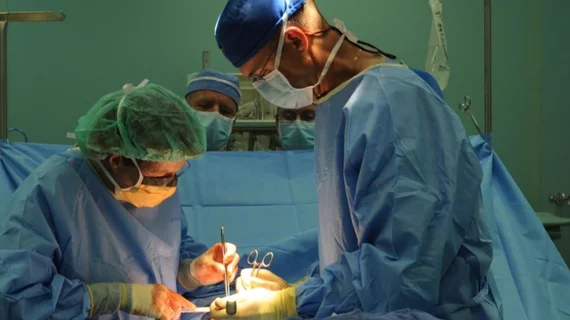Drug-related endocarditis leads to ethical dilemma for doctors
About a month ago, researchers called intravenous drug-related, infective endocarditis “a growing healthcare crisis.” They pointed out it is associated with a rising number of cases and an average of $72,000 of expenses for each hospital admission.
With the opioid epidemic in full swing and many drug users likely to relapse and require even more challenging and expensive treatment, physicians are left to grapple with what to do about repeat infections.
“We’ve literally had some continue using drugs while in the hospital,” Thomas Pollard, MD, a cardiothoracic surgeon in Knoxville, Tennessee, told The New York Times. “That’s like trying to do a liver transplant on someone who’s drinking a fifth of vodka on the stretcher.”
The Times also told the story of Jerika Whitefield, a Tennessee woman who underwent open-heart surgery at 28 after developing endocarditis from injecting methamphetamine. At the time, her doctor warned this would be a one-time deal; if she relapsed and infected her heart again, they wouldn’t operate another time.
She hasn’t relapsed thus far, according to the newspaper, but has a hard time reconciling the thought that if she or another person needed life-saving heart surgery, they might not receive it.
“When do you stop wanting to save a life?” she said. “If you have that ability, who’s to say you shouldn’t use it? I see it from their standpoint—not wanting to repeat the same game. But it’s hard, you know? This isn’t an easy disease to break away from.”
Read the full article below:

